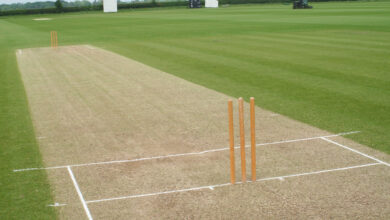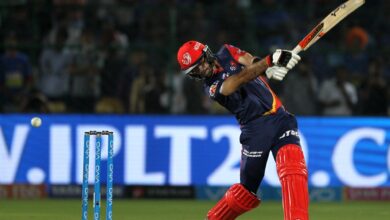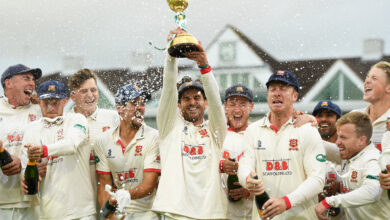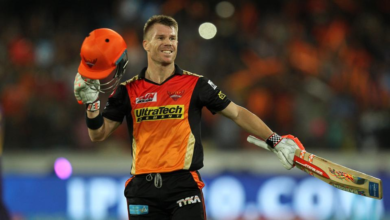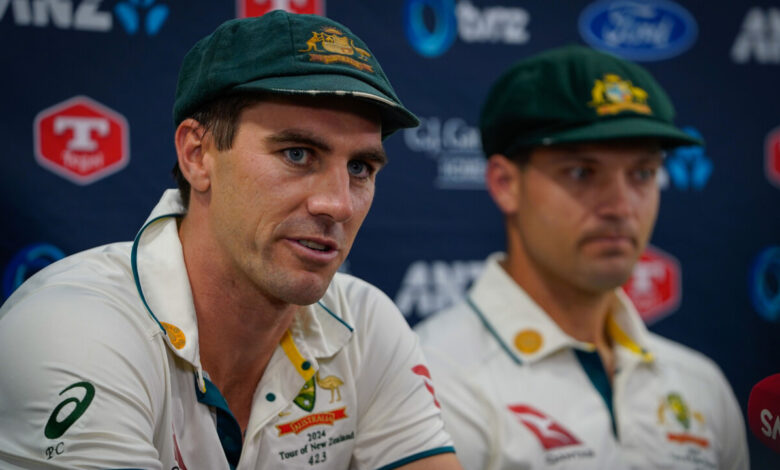
Mitch Marsh, who has assumed the position informally since Aaron Finch retired, is supported to succeed him in advance of the next major international event.
Andrew McDonald, the men’s team coach for Australia, has given Mitchell Marsh his full support to lead his country in the next men’s T20 World Cup in the Caribbean and the USA in June.
With the retirement of former captain Aaron Finch following the 2022 T20 World Cup in Australia, Marsh has assumed the leadership post informally.
When Marsh has been rested from the 20-over team, veteran keeper-batter Matthew Wade has filled in, and Test and ODI captain Pat Cummins has also remained an option. Marsh has now regained his Test berth and is a three-format player.
However, as there are no T20 matches planned before Australia’s opening Cup match against Oman in Barbados on June 6, McDonald would suggest to the Cricket Australia board that the 32-year-old be given formal command of the team.
“I believe that every path will lead to Mitch, so we just need to make some progress in that regard,” stated McDonald, who, together with Tony Dodemaide and chair George Bailey, makes up the selection panel that will advise CA of their top pick.
“We’re happy and comfortable with the way he’s been able to operate with that T20 team.”We believe he is the World Cup frontrunner, and I believe it will happen in good time.”
T20 World Cup: Australia’s Strategic Approach and Player Management
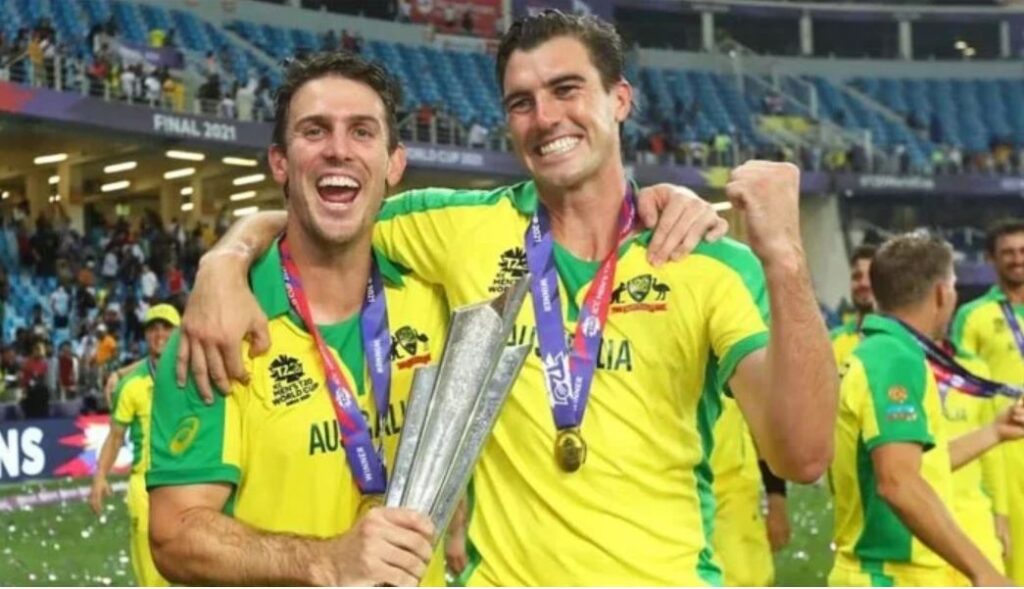
Marsh’s journey towards redemption as an international cricket player started in the 20-over game when he guided his team to the 2021 World Cup championship. This journey culminated in his well-deserved victory as the Allan Border Medallist at the recent Australian Cricket Awards.
In the Dubai final against New Zealand, he was named player of the match after smashing an undefeated 77 off 50 balls to help Australia reach the victory goal of 173, which the Black Caps had set, with more than an over remaining.
Together with Tony Dodemaide and chair George Bailey, McDonald makes up the selection panel that will advise CA of their chosen candidate. “I think all roads will lead to Mitch, so just got to get that ticked off in certain areas,” McDonald said.
We’re pleased and at ease with how he’s been able to perform with that Twenty20 squad.
“We think he’s the leader for the World Cup, and I think that will just be a matter of due course.”
Marsh’s journey towards redemption as an international cricket player started in the 20-over game when he guided his team to the 2021 World Cup championship. This journey culminated in his well-deserved victory as the Allan Border Medallist at the recent Australian Cricket Awards.
In the Dubai final against New Zealand, he was named player of the match after smashing an undefeated 77 off 50 balls to help Australia reach the victory goal of 173, which the Black Caps had set, with more than an over remaining.
His most recent Test victory against New Zealand yesterday demonstrated his ongoing development as an all-format performer. He once again spearheaded Australia’s last-innings chase, scoring 80 (from 102 balls) in a crucial sixth-wicket partnership with Alex Carey, who completed 98no.
The importance of having a player with Marsh’s versatility has also forced McDonald and other selectors to reevaluate how all-format hitters are handled throughout an increasingly packed international season.
McDonald used the example of Travis Head, an Australia T20 player who, thanks to his valiant efforts in the Test and ODI lineups, regained his spot six months ago after being out of the game for nearly five years.
Head’s subsequent performances in all three forms have been inconsistent, though, since he was thrust back into the team midway through the previous year’s ODI World Cup in India (having suffered a fractured hand in the lead-up to the tournament) and going on to star in Australia’s victory over the host country India in the final.
In the three-match T20I series that preceded the Tests in New Zealand, he was unstoppable and finished first in runs scored; however, in the four red-ball matches that followed, he was unable to score thirty runs.
Australia lost yesterday morning’s match after losing the second over, 580 chasing 279, when Head was caught at point driving idly at a wide ball from Tim Southee. Head was physically and mentally exhausted as he pulled himself off the field, even though he had taken a nap just after the home Test opener.
McDonald admitted that Head appeared to be under strain due to a severe workload over the previous 18 months, but he insisted that players who move formats are still managed individually according to their needs.
McDonald said, “There’s a lot of stress” in reference to the exceptional batter who won player of the match in Australia’s victory in the World Test Championship Final and the ODI World Cup Final.
It drains you both physically and mentally, and he was recovering from a serious injury sustained during the World Cup. Trav’s debut into all three forms and the need to give him a little downtime over the Australian summer are undoubtedly something we can learn from.”Thus, there’s a certain amount of balance, and I believe we do it effectively with bowlers where it makes a lot of sense because we strive to protect them from injuries and keep them fresh at the appropriate moments more so than with other players. However, it seems to me that the discussion should be focused on batters and how much they can handle over time.
McDonald also noted that certain all-format players could prefer Marsh Sheffield Shield games over limited-overs internationals in order to better prepare for next summer’s five-Test series against India, to whom Australia has lost its last four Border-Gavaskar Trophy matches.
All-rounder Cameron Green, who was benched for the T20I series against New Zealand in favor of playing for Western Australia and scoring a century, proved that the tactic was effective. Green’s century helped set the stage for his game-winning 174 not out in the first Test match against the Black Caps in Wellington.
The Australian men’s team’s sole upcoming obligations beyond the T20 World Cup in June are a string of white-ball matches in the UK in September and a home limited-overs campaign against Pakistan in November, which comes right before the Tests against India.
Therefore, McDonald has hinted at the possibility that all-format batsmen like Steve Smith might decide to train for Test matches in the Shield competition rather than play white-ball cricket, where the ICC Champions Trophy, which is set to take place in Pakistan in early 2025, will be the next major international competition.
“We’ve got England in September, and then October becomes a bit of a space for some players to potentially play some Shield cricket, then we’ve got Pakistan in an ODI series,” McDonald stated.
“We always have to balance adjusting to new formats, and Steve Smith is undoubtedly a key component of our white-ball setup.
With Cameron Green, we’ve had the opportunity to do that, and we’ll position each player as best we can before the India Tests.”
Group B fixtures for Australia in the 2024 ICC Men’s T20 World Cup are as follows: June 6 vs Oman, Kensington Oval, Barbados, 10.30 am AEST
June 9: 3 a.m. AEST vs. England, Kensington Oval, Barbados
June 12: 10.30 a.m. AEST vs. Namibia at Sir Viv Richards Stadium in Antigua
June 16: 10.30 a.m. AEST vs. Scotland at Daren Sammy Stadium in St. Lucia
Super 8s matchups to be confirmed

